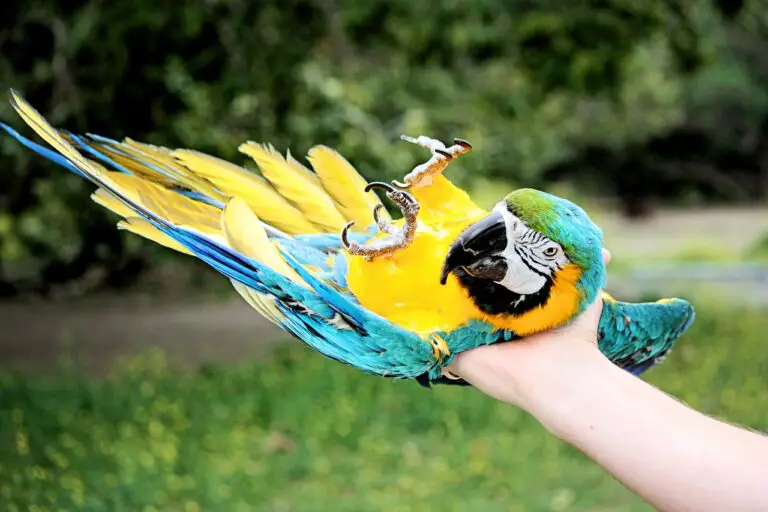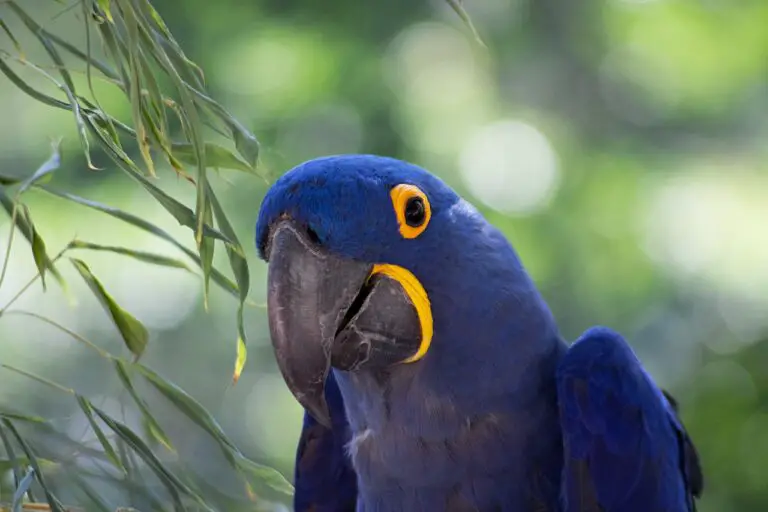Exotic Pet Ownership Psychology: Behind the Owner’s Mindset
Have you ever come across a person walking their exotic pet on the street and wondered why someone would choose to own such an unconventional animal?
From snakes to tarantulas, hedgehogs to sugar gliders, exotic pets are becoming increasingly popular in today’s society.
But what motivates people to take on the responsibility of owning a unique pet, and what are the psychological consequences of doing so?
In this article, we will explore the psychology behind exotic pet ownership and shed some light on the fascination and consequences that come with it.
Introduction to Exotic Pet Ownership Psychology
Exotic pets are defined as any non-domesticated animal kept as a pet.
These animals are typically not found in the average household and may require special care, handling, and equipment.
The list of exotic pets is vast, ranging from large cats to reptiles and insects. While some people enjoy owning exotic pets, others may be fascinated by them but refrain from owning them due to the responsibilities involved.
In recent years, the popularity of owning exotic pets has increased.
People are drawn to the idea of owning a unique animal that sets them apart from the typical cat or dog owner.
However, owning an exotic pet is not as simple as purchasing one and bringing it home.
It requires extensive research, preparation, and specialized care to ensure the animal’s health and well-being.
The Psychology of Exotic Pet Ownership
The desire to own an exotic pet can stem from a variety of psychological factors.
Some people may feel a need for control, and owning a unique pet may give them a sense of power and exclusivity.
Others may view owning an exotic pet as a way to rebel against societal norms or to establish their individuality.
Additionally, some people may simply be fascinated by these animals and want to learn more about them by keeping them as pets.
The decision to own an exotic pet may also be influenced by a person’s personality traits.
For example, individuals who are highly impulsive or have a high need for stimulation may be more likely to own an exotic pet than those who are more cautious and reserved.
Moreover, people who are highly empathetic towards animals may be drawn to the idea of owning a unique pet to provide them with a better quality of life.
The Dangers of Exotic Pet Ownership
While exotic pet ownership can be a rewarding experience for some people, it is not without its risks.
Exotic pets require specialized care and attention, and not all owners are equipped to provide it.
Many exotic animals have specific dietary and environmental needs that must be met in order to keep them healthy and happy.
Failure to meet these needs can result in serious health problems for the animal and even death.
Exotic pets also pose a risk to public safety.
Many exotic animals are potentially dangerous and can cause serious harm to humans if not properly trained and handled.
In addition, some exotic pets can carry diseases that are transmissible to humans, making them a public health risk.
The Ethics of Exotic Pet Ownership
The ethics of exotic pet ownership are complex and multifaceted.
On the one hand, owning an exotic pet can provide a loving home for an animal that might not otherwise have one.
Also, many exotic animals are taken from their natural habitats and subjected to cruel and inhumane conditions in the pet trade.
In addition, the demand for exotic pets fuels illegal wildlife trafficking and contributes to the decline of many species.
Pros and Cons of Owning Exotic Pets
While the idea of owning an exotic pet may seem appealing to some, it is important to consider the potential advantages and disadvantages before making a decision.
Pros
- Uniqueness: Owning an exotic pet sets you apart from the typical cat or dog owner and can give you a sense of exclusivity.
- Learning experience: Owning an exotic pet provides the opportunity to learn about different species and their unique needs and behaviors.
- Companionship: Exotic pets can provide companionship and emotional support to their owners.
Cons
- Legal restrictions: The ownership of exotic pets is heavily regulated and in some cases, banned entirely. It is important to research the laws in your area before purchasing an exotic pet.
- Financial burden: Owning an exotic pet can be expensive due to the specialized care and equipment required.
- Safety concerns: Exotic pets can be dangerous to both their owners and others if not properly handled and cared for.
- Ethical considerations: Keeping an exotic pet in captivity raises ethical questions about animal welfare and the impact on their natural habitats.
Conclusion
The decision to own an exotic pet should not be taken lightly.
While the fascination with these unique animals may be understandable, it is important to consider the psychological factors and potential consequences involved.
Before making a decision to own an exotic pet, it is crucial to thoroughly research the animal’s needs, the legalities involved, and the potential ethical considerations.
Ultimately, the responsibility of owning an exotic pet should not be taken lightly, and the decision should be made with the animal’s best interests in mind.
In conclusion, the psychology behind exotic pet ownership is complex and multifaceted, and there are both advantages and disadvantages to owning an exotic pet.
While the fascination with these unique animals may be understandable, it is important to carefully consider the potential risks and responsibilities involved before making a decision.
FAQs
Is it legal to own an exotic pet?
The legality of owning an exotic pet varies depending on the species and the location. I
n some countries or states, it may be legal to own certain types of exotic animals, while in others it is prohibited.
It is important to research the laws in your area before considering exotic pet ownership.
What are some common exotic pets?
Some common exotic pets include snakes, lizards, birds, monkeys, and small mammals like hedgehogs and sugar gliders.
How do you properly care for an exotic pet?
Proper care for an exotic pet varies depending on the species, but it generally involves providing a suitable diet, environment, and medical care.
It is important to research the specific needs of the species you are interested in before bringing an exotic pet home.
What are some of the risks associated with owning an exotic pet?
Exotic pets can pose a risk to both the owner and the public if they are not properly trained and handled.
They may also require specialized care that can be expensive and time-consuming.
In addition, owning an exotic pet may contribute to illegal wildlife trafficking and the decline of certain species.
Should people own exotic pets?
The decision to own an exotic pet is a personal one that depends on a variety of factors, including the individual’s knowledge, resources, and ethical considerations.
It is important for potential exotic pet owners to thoroughly research the species they are interested in and consider the potential risks and benefits before making a decision.
Are exotic pets difficult to care for?
Exotic pets require specialized care and handling, and their needs can be more challenging to meet than those of domesticated animals.
What are the potential dangers of owning an exotic pet?
Exotic pets can pose safety risks to both their owners and others if not properly cared for and handled.
What are some ethical considerations when owning an exotic pet?
Keeping an exotic pet in captivity raises ethical questions about animal welfare and the impact on their natural habitats.
Is owning an exotic pet worth the risks and responsibilities involved?
The decision to own an exotic pet should be carefully considered, taking into account the potential risks and responsibilities involved.
Peter Stones is the founder of Exotic Pets Place, the leading online resource for exotic pet care information.
With over 10 years of hands-on exotic pet ownership experience, he is deeply passionate about sharing his expertise to help others properly care for their unusual pets.
When he's not writing extensively researched articles or connecting with fellow exotic pet enthusiasts worldwide, you can find Peter at home tending to his own beloved menagerie of exotic animals.





![The Pros and Cons of Owning an Exotic Pet in College [+ FAQs], a man with a backpack](https://exoticpetsplace.com/wp-content/uploads/2023/06/The-Pros-and-Cons-of-Owning-an-Exotic-Pet-in-College-FAQs-a-man-with-a-backpack-768x512.jpg)

